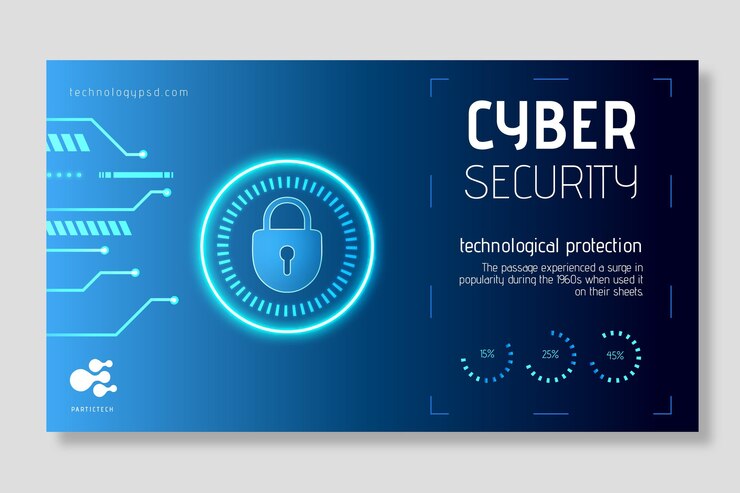2022 is the year to start your e-commerce business! With the e-commerce industry growing by 23% year over year, there has never been a more perfect time!
However, e-commerce is not the only one on the rise!
Did you know that cyber-attacks were rated the fifth top-rated risk in 2020? According to Accenture’s “state of cyber security resilience 2021” report, attacks per company increased from 206 to 270 over the year.
Not to rain on your parade, but here is the harsh reality: cybercrime can make or break your business. Damage and destruction of data, stolen money, lost productivity, theft of intellectual property, theft of personal and financial data, embezzlement, fraud, post-attack disruption to the normal course of business, and the list goes on and on…
The bottom line is that if you are looking to set up your e-commerce business, security must be at the top of your priority list.
But how exactly do you create a “safe and secure” online store?
This might sound cliche, but the first step is undoubtedly to choose a trustworthy e-commerce platform.
When you think of the phrase “a successful yet secure online business”, the name Shopify comes to mind. Shopify is a good bet on cyber security for online businesses.
Why?
That is exactly what we are going to be talking about in this blog! Let us take you through the basics of how you can run a thriving e-commerce business, (that is well-protected from cyber-attacks) using Shopify!

What is Shopify?
- Retail Point of Sale (POS)/ payment gateways
- Marketing Services
- Automated customer engagement tools
Unsurprisingly, like all online businesses, Shopify merchants are not impervious to cyber-attacks. Nevertheless, one of the many advantages of using e-commerce platforms like Shopify is that they have a dedicated team of engineers working to give you the best experience possible.
Unfortunately, cyber security attacks are significant variables in any online marketing venture. Therefore, to build trust and ensure growth, online retailers must prioritise the security of their customers. To that end, it is essential to identify challenges unique to e-commerce security. We will also be discussing mitigation strategies for these challenges.
IMPEDIMENTS OF CYBER SECURITY IN THE E-COMMERCE INDUSTRY
For the sake of brevity, e-commerce security can be classified as follows:
- Customer data security
- Merchant account security
Customer Security
When customers access an e-commerce store for a transaction, they want to be certain that their data is secure. Why? Customers often make payments with credit or debit cards, and web servers store that credit card data for successful transactions. Towards that end, it is crucial that the server is Payment Card Industry (PCI) compliant.
Vulnerable servers may lead to credit card data breaches, and as a result, missing money. Compromised credit or debit cards can result in fatal and avoidable repercussions for any brand, especially affecting small and medium-scale businesses.
Another vital factor to consider is the issue of Secure Socket Layer (SSL) certificates. An SSL certificate is a signed guarantee that assures a web server’s authenticity. An SSL certificate authorises a website to move from Hypertext Transfer Protocol (HTTP) to Hypertext Transfer Protocol Secure (HTTPS). In simple terms, SSL provides an encrypted connection between a browser and a web server. It is a way to protect data sent over the internet to a destination server.
Failure to acquire an SSL certificate for a website creates a vulnerability that can result in the compromise of sensitive customer data. This incident may lead to identity theft which can be financially devastating.
Fortunately, unlike self-hosted e-commerce stores, in addition to providing these services, Shopify is Payment Card Industry (PCI) Level 1 compliant, which means it has attained all six levels of PCI standards:
- Maintain a secure network
- Protect cardholder data
- Maintain a vulnerability management program
- Implement strong access control measure
- Regularly monitor and test networks
- Maintain information security.
Merchant’s account security
Merchant account security is an all-hands-on-deck mission. This involves maximum cooperation from both e-commerce platforms and merchants. E-commerce platforms like Shopify, in terms of security, offer the following services:- Servers and Infrastructure maintenance
- payment gateways and point of sale services (POS)
HOW TO SECURE YOUR SHOPIFY STORE
A website is as secure as its admin’s ability to secure passwords and the site’s ability to ward off brute force attacks. To enhance Shopify store security, the following recommendations have been collated:
Utilise Strong Passwords
Shopify merchants need to use secure passwords. These passwords must be kept confidential at all times.
The password must be a random combination of letters, numbers and special characters. However, recalling a password of random numbers and characters is a difficult task. Therefore, it is advisable to use a password vault; this simplifies the process of setting and recalling a strong password.
ENABLE TWO-FACTOR AUTHENTICATION
Two-factor authentication is an added layer of protection to the basic username and password. This means you will require an added level of abstraction like an OTP (one-time password) sent via SMS, or a code generated by a mobile app to be able to access your site.
LIMIT/SCRUTINISE PERMISSIONS GRANTED TO THIRD-PARTY APPS.
Third-party apps are used by merchants to augment the basic functionality of Shopify. However, they can pose threats if granted permission to modify or perform a certain task. When hackers gain access to a third-party app that is granted API access, they can access all customer data exempting credit card data.
OPTIMISE ADMIN SECURITY
Shopify offers merchants a user privilege system. This means merchants can audit employees’ permission by giving different levels of privilege to staff members based on certain criteria. This can be used to restrict certain content and allow a specific set of employees to access certain information.
ENABLE FRAUD PROTECTION
Shopify has an outstanding fraud prevention system. This feature allows for proper scrutiny of customer information. This can be utilised to flag suspicious orders so they can be investigated or manually reviewed before processing. This feature is implemented by juxtaposing Address Verification System (AVS) and Card Verification Value (CVV) and ensuring that they match. Enabling this feature protects your business from risks.
BACKUP YOUR CONTENT
Security is not always foolproof. Therefore, your best bet is to have an automated backup system. This ensures minimal loss and fast recovery in case of unplanned accidents.
Furthermore, there are third-party applications that provide security features in the form of backup, content restriction, malware security and content protection. To name a few:
- Locksmith
- Cosy Anti Theft
- McAfee Secure
- Rewind Backup


Conclusion :
I hope that after reading this blog, your worries about potential cyber-attacks have been reduced! But here’s a cautionary warning, though these recommendations can cover potential vulnerabilities, there is no silver bullet approach to solving cyber security threats. The best option is continual scrutiny of security protocols and management strategies. If you are planning to launch your Shopify store then you can contact SRLabs to get top-notch Shopify development services.
- Related content: To ensure the security of your Shopify store and protect it from potential issues, our blog post on Shopify vs. Shopify Plus: Which E-commerce Platform is Right for Your Business? offers valuable insights and recommendations.